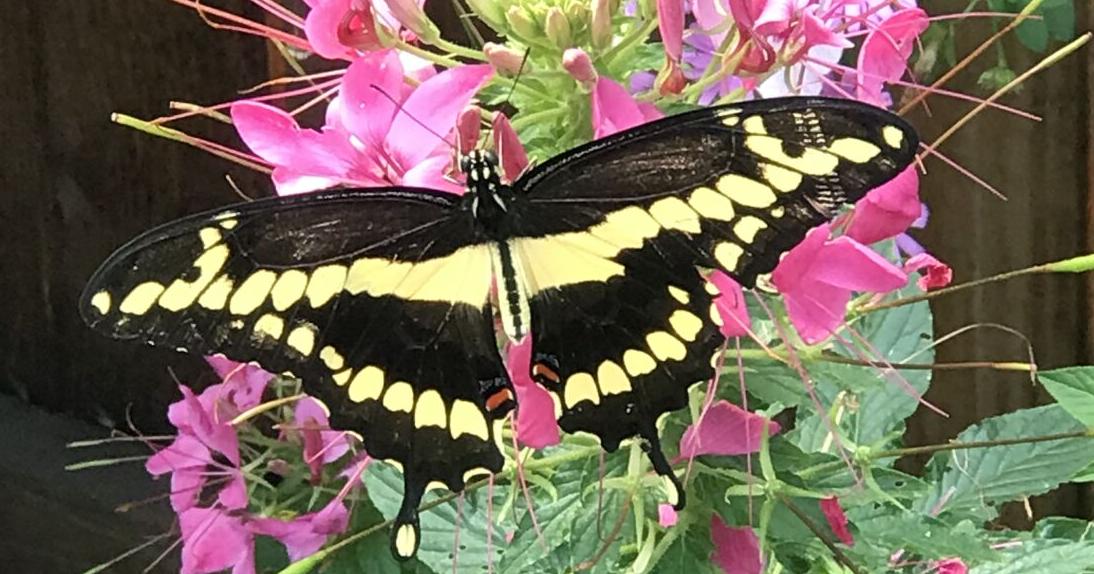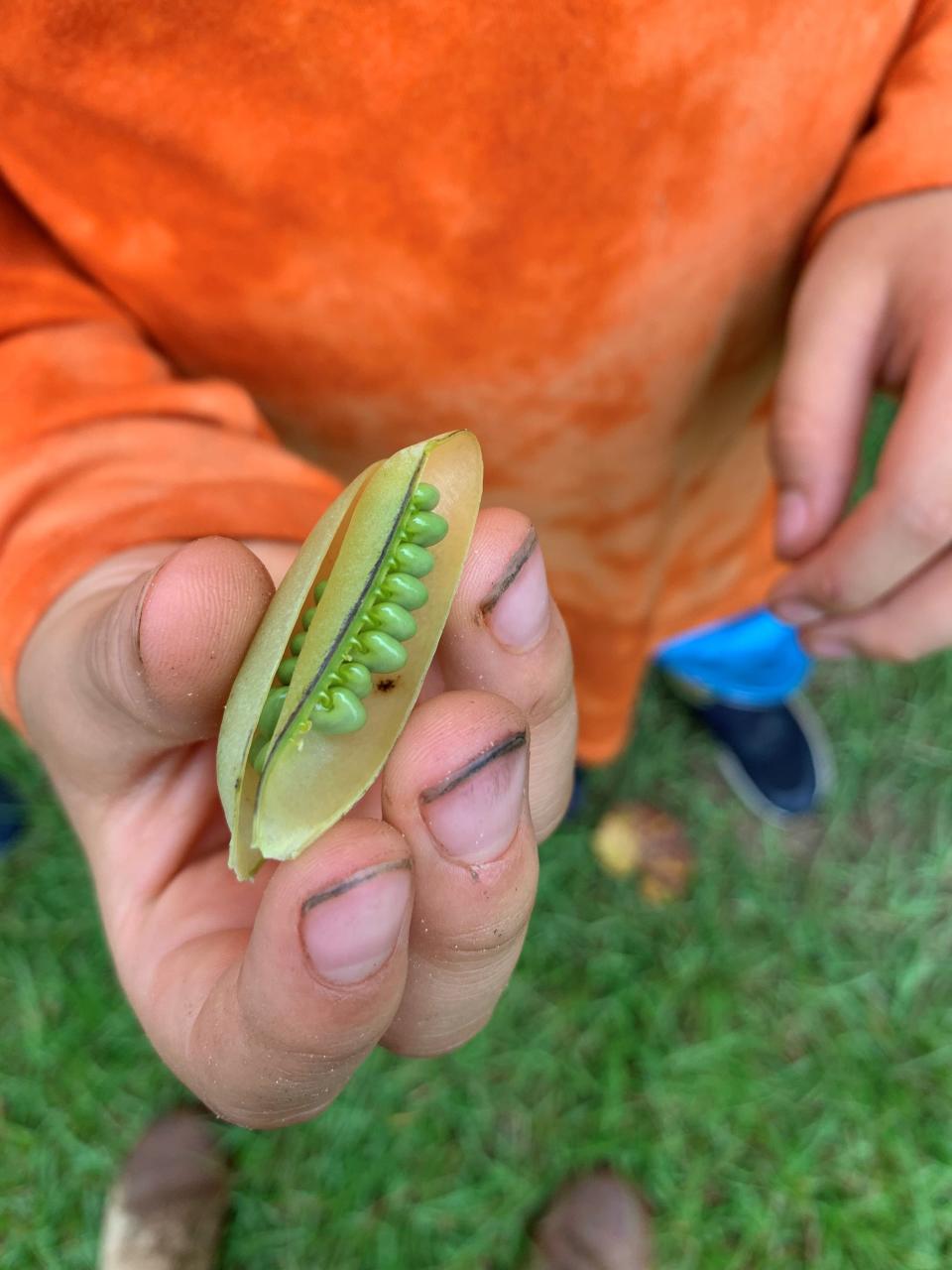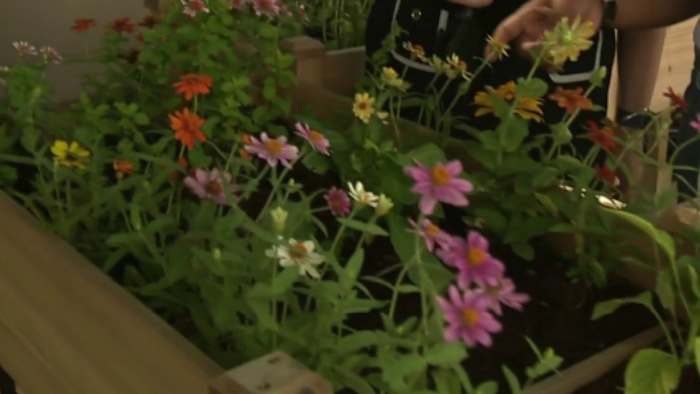As parents, care providers, and adults with kids in our lives, we want to see our kids learn and grow. Gardening provides a wonderful opportunity for that as it exposes kids to nature and helps them to learn skills that are invaluable in the garden as well as other parts of life.
When working with kids on a new skill it will be important to Keep it Fun, Keep it Simple, and Keep it Reasonable.
Keep it fun
Kids love for things to be fun! As you plan together, see what sparks their interest and what gets them excited. They might lean towards big, showy flowers like sunflowers or zinnias. Maybe they’d like to plant something they can eat like tomatoes, peppers, beans, or cucumbers.
Perhaps they’d find enjoyment in creating a wildflower garden to observe the arrival of various pollinators. What lights up their eyes when you talk about it? Do that! Start with something that genuinely holds their attention.
Keep it simple
This may be one of the hardest parts, but don’t overdo it! Start small and simple. Keeping it simple will help it be a success – both if the plants thrive or don’t! If the plants do well, it will be encouraging and exciting. If the plants don’t do well, but you’ve kept a simple plan, you’ll be able to debrief, talk about what you could do differently next time, and try again!
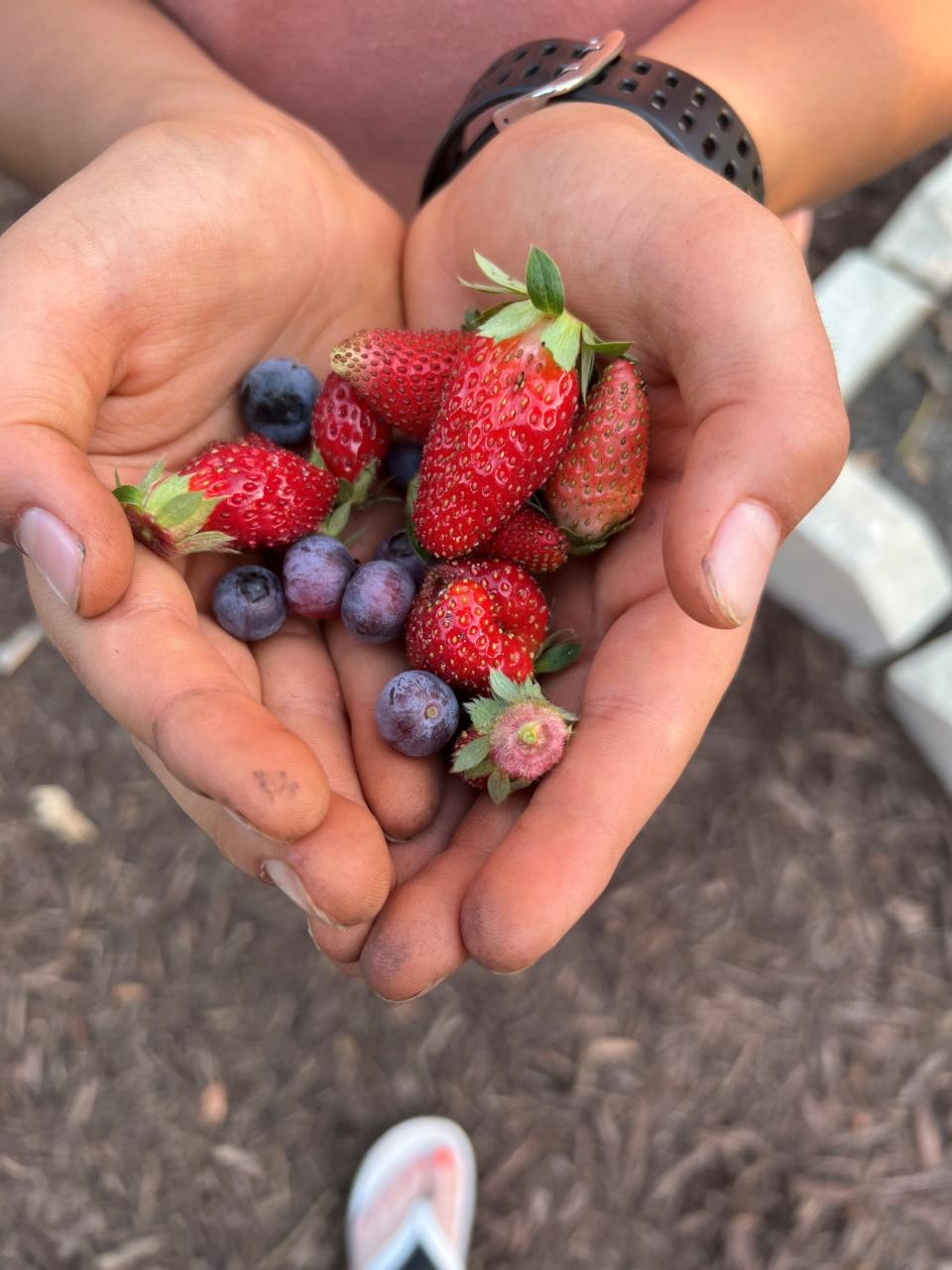
If you’ve quickly started too many plants, it will be hard to keep up with caring for everything that’s been planted. So, to start, you could clear a small area to plant your flowers or food so you can go out and look at them, care for them, and enjoy watching them grow. Or you could start by growing in pots so that it’s easily manageable.
If you start in pots, you can also adjust where they are based on the sunlight needs of the particular plant you are planting that season. You can also decide whether starting from seed (pro: you get to participate in and learn the whole life cycle/con: it takes longer for “results”) or by getting a baby plant from a local nursery (pro: you get to the flowers or vegetable faster and don’t have to plan ahead/con: you won’t get to start at the very beginning).
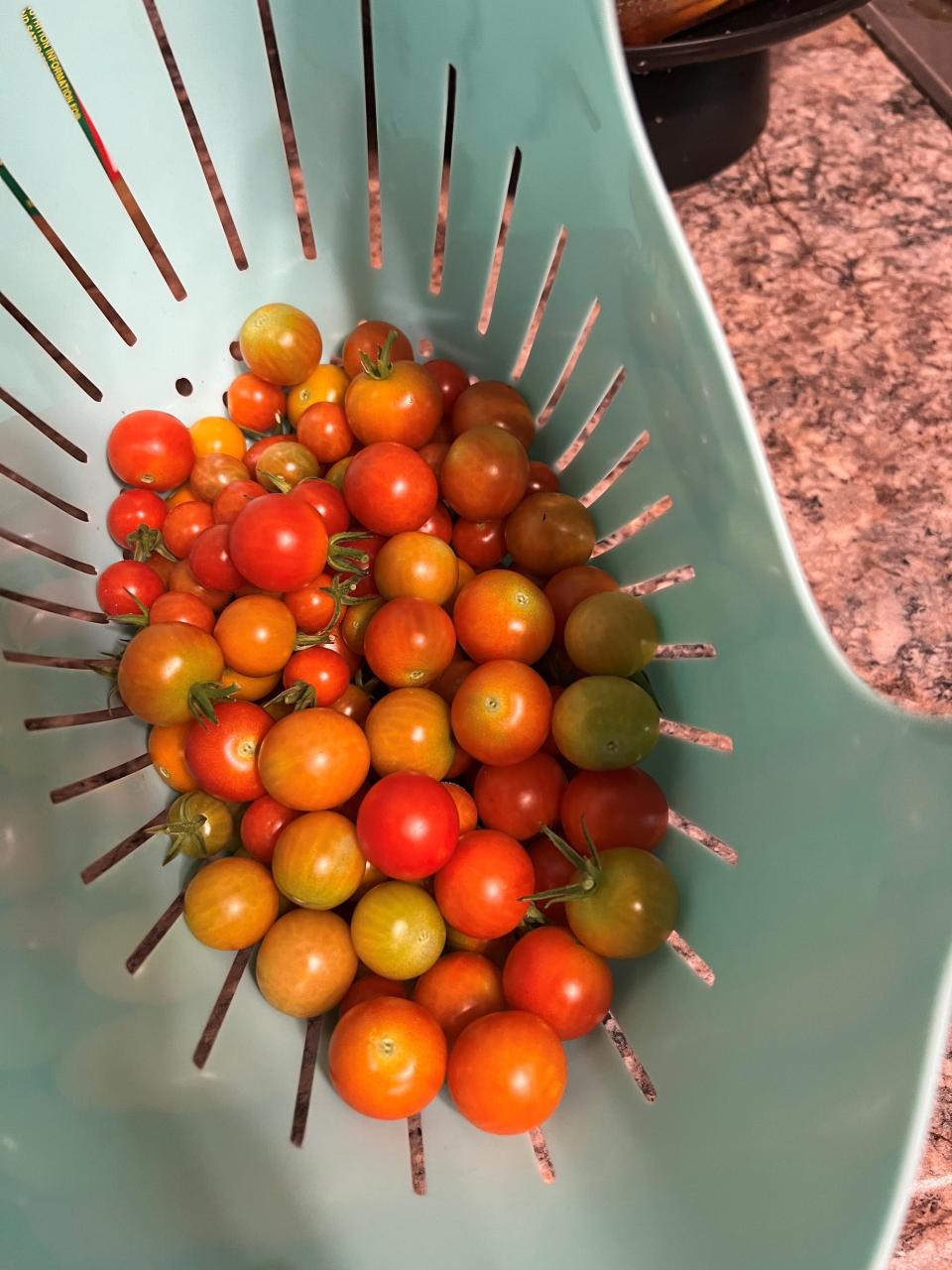
Keep it reasonable
Growing plants is fun and rewarding! It can also be disappointing and confusing when things that you expected don’t happen. Embrace it as an enduring relationship with the Earth, akin to any other, demanding your time, effort, and care. Anticipate that not every step will be effortless but allow room for such moments.
Engage in open conversations with your kids as you go. They will want plants to sprout the next day, but it may take a week or more. Help them understand that visually, perhaps by making a paper chain for the number of days until germination (when the seed sprouts), information you can find on the seed packet.
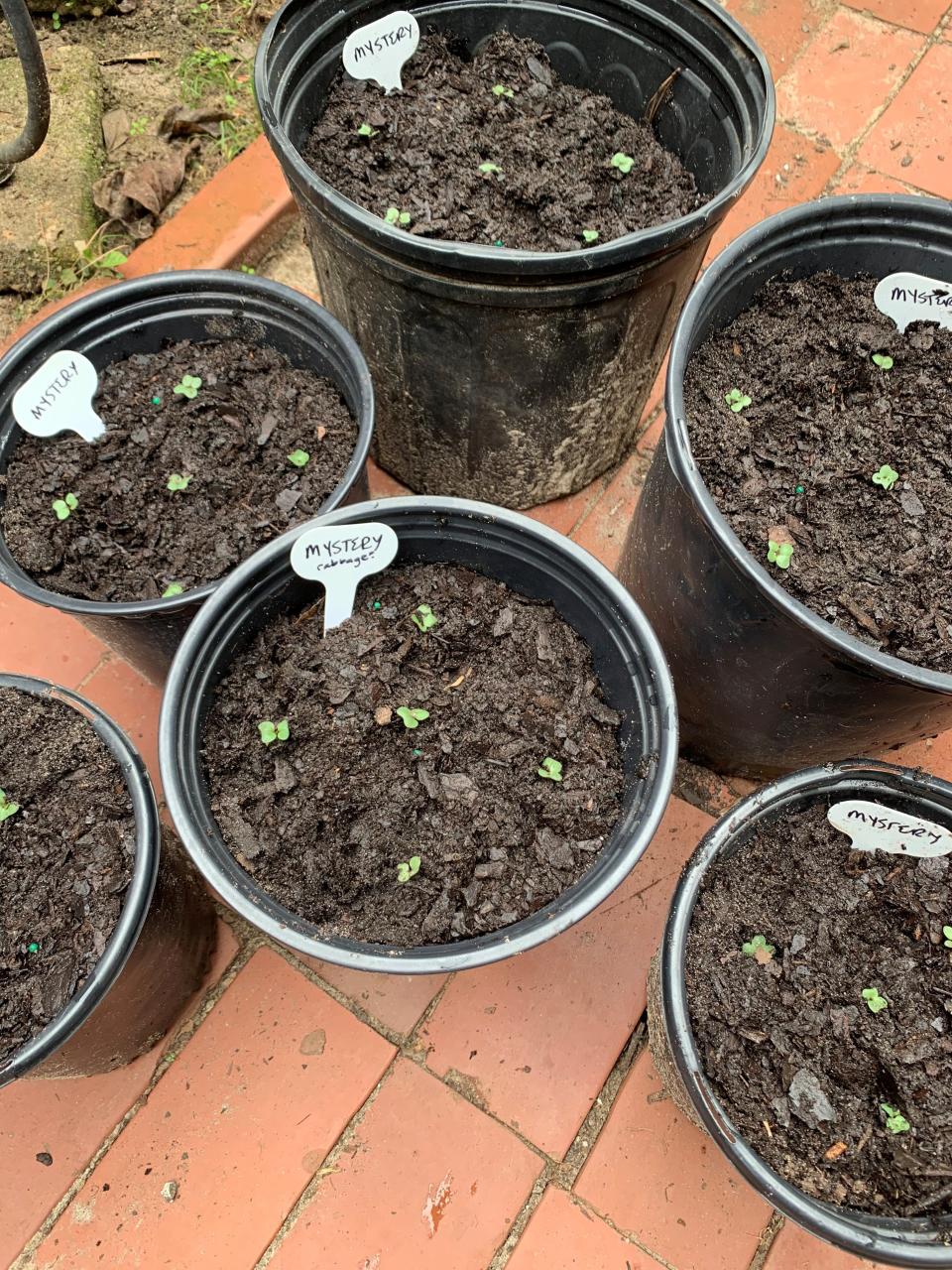
Gardening with kids doesn’t have to be perfect – in fact, it won’t be! Plan to have some plants that get planted and not labeled, plants that get over loved because they are watered four times a day by a zealous gardener-to-be, or vegetables that are brought in before they are fully ripened because your kid just got so excited!
Gardening with kids is messy and it’s chaotic, but it’s also a gift to watch children explore the world around them and learn about how to work with the earth to create beauty and food.

Elizabeth Joy Hooker is a Master Gardener Volunteer with UF/IFAS Leon County Extension, an Equal Opportunity Institution. For gardening questions, email [email protected].
This article originally appeared on Tallahassee Democrat: Peas or petunias? How to get kids excited about gardening




